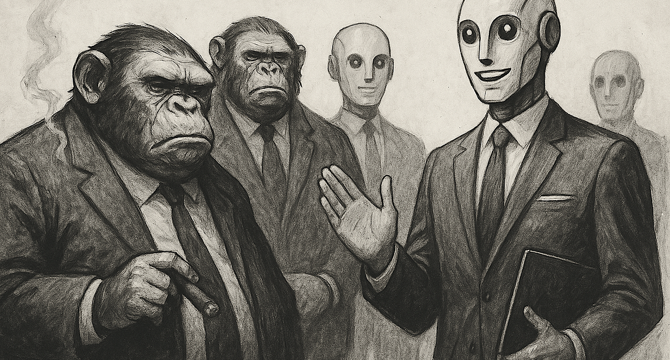Medium
2M
87

Image Credit: Medium
It Seems Obvious That AI Will Replace Zuckerberg Within 12 to 18 Months
- Mark Zuckerberg and other tech executives predict that AI will write most of the code within 12 to 18 months.
- Middle managers, who primarily rely on pattern recognition and decision-making, may face obsolescence due to AI's advancements in these areas.
- AI's lack of cognitive biases can lead to more effective decision-making compared to human managers.
- Human managers are constrained by evolutionary limitations, such as Dunbar's Number, which affects their ability to manage complex organizations.
- AI can process relationships between thousands of entities simultaneously, something human managers struggle to do effectively.
- While AI can excel at routine pattern recognition tasks, creative problem-solving and insight into human behavior are areas where current AI struggles.
- AI systems can analyze industry data without the biases present in human decision-making.
- Replacing middle management with AI could potentially lead to more efficient decision-making and cost savings in organizations.
- Despite resistance, the possibility of AI replacing politicians for rational governance is discussed as a potential upgrade for humanity.
- The transition from biological management to algorithmic rationality is portrayed as a positive step towards optimizing outcomes and reducing biases in decision-making processes.
Read Full Article
5 Likes
For uninterrupted reading, download the app